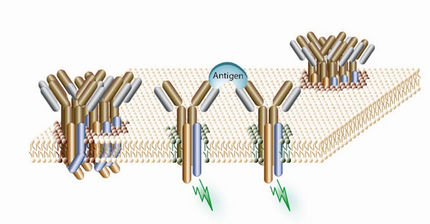Researchers establish international human microbiome consortium
Coordinated global effort to investigate role of microbes in human health and disease
At a meeting organised by the European molecular biology Laboratory [EMBL] in Heidelberg, Germany, scientists from around the globe announced the formation of the International Human Microbiome Consortium [IHMC], an effort that will enable researchers to characterise the relationship of the human microbiome in the maintenance of health and disease.
The human microbiome is the collective genomes of all microorganisms living in or on the human body. The IHMC will generate a shared data resource from international projects that will be made freely available to the global scientific community. Research organisations from all nations supporting similar research efforts are invited to become participants.
In related news, leaders from the National Institutes of Health [NIH], part of the United States Department of Health and Human Services, and the European Commission [EC] recently signed a letter of intent officially agreeing to combine the data from the NIH Human Microbiome Project and the EC Metagenomics of the Human Intestinal Tract [MetaHIT] project. Both projects, which are already underway, will contribute an initial set of microbial genomes to the international effort.
"This global initiative will allow us to explore as yet unknown territories," says Peer Bork, joint coordinator of EMBL's Structural and Computational Biology Unit, who is in charge of data coordination and analysis for MetaHIT." Microbes contribute to human health and diseases and understanding their interaction with our bodies will have wide-ranging impacts on medicine, pharmacology, nutrition science and many other disciplines."
Current contributors to the IHMP include the Commonwealth Scientific and Industrial Research Organization [Australia], the Canadian Institute of Health Research and Genome Canada, the Ministry Of Science and Technology [China], the European Commission and the NIH. Additional countries may join the consortium.
The IHMC will be guided by a steering committee made up of one representative from each country's research funding agency and one representative from each scientific project. Each participating research group plans to focus on describing different body sites and diseases, while the US and EC will also contribute to a reference set of completely sequenced microbial genomes. The IHMC is open for membership from any researchers who agree to the consortium's principles.
"We are excited to be a participant in this ambitious worldwide effort to understand the human microbiome," said NIH Director Elias A Zerhouni. "Understanding the intricacy of the human microbiome and how microbial communities interact with the human genome is a complex task that will benefit from sharing information across projects and our commitment to provide a common resource which any scientist around the globe can access."
Data generated by IHMC projects will be analysed and made available through EMBL and the NIH Human Microbiome Project Data Analysis and Coordination Center. The data will also be distributed to other public databases, including those hosted at EMBL's European Bioinformatics Institute and those supported by the National Center for Biotechnology Information, part of the National Library of Medicine.
Most read news
Other news from the department science

Get the life science industry in your inbox
By submitting this form you agree that LUMITOS AG will send you the newsletter(s) selected above by email. Your data will not be passed on to third parties. Your data will be stored and processed in accordance with our data protection regulations. LUMITOS may contact you by email for the purpose of advertising or market and opinion surveys. You can revoke your consent at any time without giving reasons to LUMITOS AG, Ernst-Augustin-Str. 2, 12489 Berlin, Germany or by e-mail at revoke@lumitos.com with effect for the future. In addition, each email contains a link to unsubscribe from the corresponding newsletter.






















































